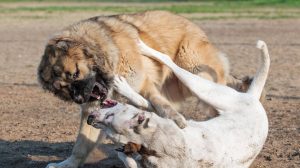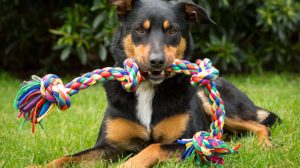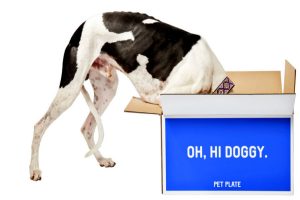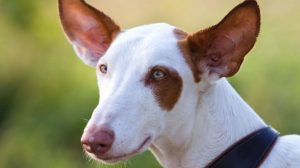Obesity in dogs is often downplayed. It can have devastating health consequences if four-legged friends are too fat. The leading causes are that the dog overeats food and moves too little. But how can this happen?
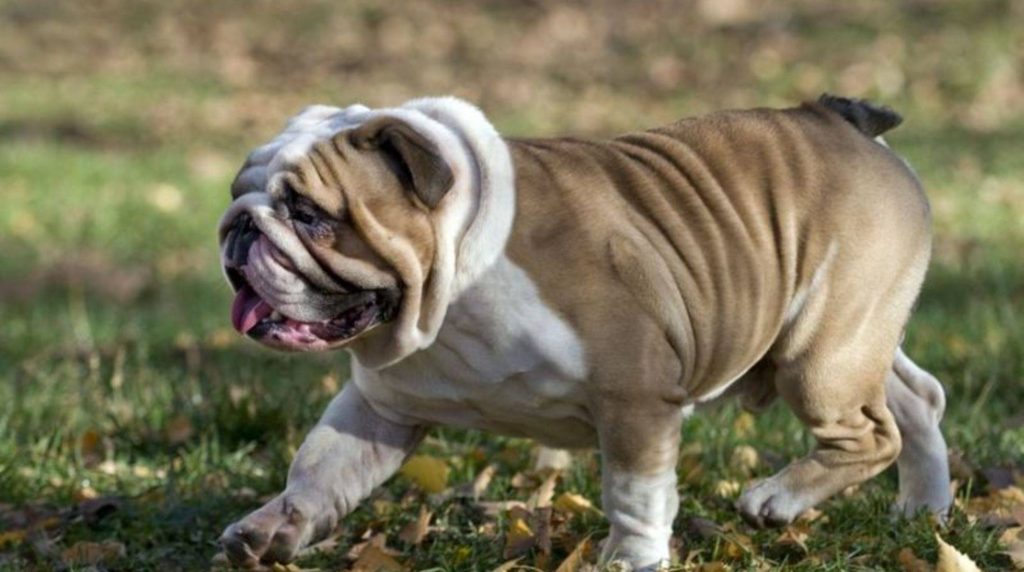
A treat here, a piece of sausage there – little by little, such treats can lead to obesity in the dog. If your dog does not exercise enough, even the food portion recommended for its breed, size, and age can be too much in the long run. Read here what causes obesity in dogs can have and how you can prevent it.
Poor nutrition as a cause of obesity in dogs
The most common reason for too many kilos on the ribs is poor nutrition, even in our animal friends. Often dog owners feed too high-energy food; the four-legged friend cannot use up the entire amount of calories consumed and becomes too fat. Every breed of dog and age group has a different energy requirement – you should find out all about it.
Follow the feeding recommendations on the food packages and ask your veterinarian for advice if in doubt. Also, consider extra treats. These are often forgotten when calculating the daily calorie count. A balanced diet is essential in puppyhood. Because dogs that were malnourished at a young age are more likely to become overweight later on.
Additionally, puppies fed too much energy, and nutrients may grow too quickly, causing their bones and joints to be unstable. This increases the risk of later hip dysplasia (HD) or elbow dysplasia (ED).
The dog is too fat: Lack of exercise as a cause of obesity.
Obesity in dogs is favored by too little training. The energy that your dog absorbs in calories from food must also be burned off to maintain a healthy weight. The dog’s body stores all the calories it does not use up as fat reserves. The following applies: small cattle also make crap. This means that if your dog eats just a little too much and moves just a little too little over some time, he will gradually gain weight and eventually become overweight.
Another problem with a lack of exercise is that under-challenged dogs quickly become bored. How they react to this boredom varies from animal to animal. Some dismantle the apartment; others, in turn, discover eating as an employment measure. Being overweight is inevitable.
High-energy food is usually recommended for active dog breeds such as the husky. Follow strict nutritional and portion size guidelines, but walking your husky for just an hour each day will make him gain weight. To avoid being overweight, you must also do dog sports with him and adjust the feed precisely to his consumption. Your veterinarian can help you with this.
Other causes of obesity in dogs
Obesity in dogs can also be associated with certain diseases. These include, for example:
● Underactive thyroid (hypothyroidism)
● Cushing’s disease (dysfunction of the adrenal gland and hypothalamus)
● Joint problems (e.g., arthrosis, HD, or ED)
Hypothyroidism means your dog burns fewer calories than a healthy dog of the same age and size if he is still fed like a healthy dog, weight gain.
On the one hand, the metabolic disorders associated with Cushing’s disease make your dog tired so that he no longer likes to exercise. On the other hand, it increases appetite so that he eats more. The combination of both causes obesity.
Osteoarthritis, hip dysplasia, and elbow dysplasia cause pain in the joints, causing your dog to lose weight and gain weight. With age, dogs suffer more from joint pain, so four-legged seniors often have to struggle with excess kilos.
Certain medications, such as those containing cortisone, can also cause obesity in dogs. Another common risk factor for weight gain is castration. Neutered dogs are more comfortable than their unneutered counterparts due to the lack of sex drive. They also often have an increased appetite.
Check your dog’s weight regularly and note any changes. If you suspect that an illness could be behind the extra pounds, have the vet carry out a cardiovascular check and a blood test. Danger! If you observe an unusual weight gain in your dog in a specific part of the body that cannot be explained by malnutrition or lack of exercise, take it to the vet as a precaution. There could be a tumor behind it.
Which dog breeds are particularly prone to obesity?
Some dog breeds are more prone to obesity than others. The causes for this lie, for example, in unfavorable body proportions – short legs, for example, restrict mobility – or a pronounced disposition to gluttony. Tiny dogs often tempt their owners to spoil them with treats because of their cute appearance. However, since small dogs do not need that much energy, the additional treats are deposited as fat deposits.
Dog breeds with a tendency to be overweight due to physical characteristics are, for example:
● Basset Hound
● Dachshund
● English bulldog
● Pug
These dog breeds are considered greedy:
● Beagles
● Golden Retrievers
● Labrador Retrievers
● Rottweilers
Dog breeds that are often overindulged in food include:
● Cocker Spaniels
● Yorkshire Terriers
● Chihuahuas
In some dog breeds, there are several risk factors for being overweight. Pugs, for example, are both physically restricted and often victims of pampering.


